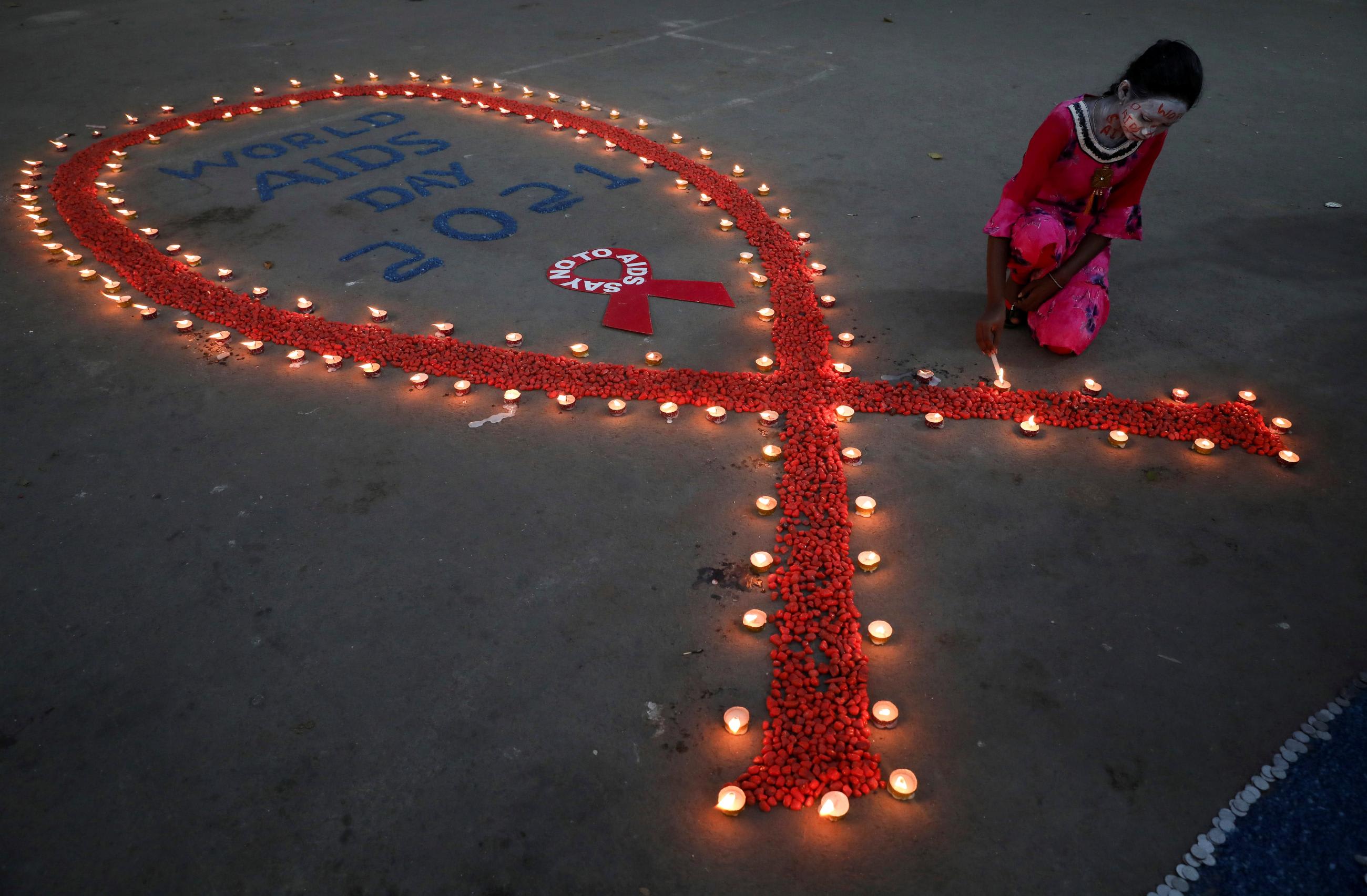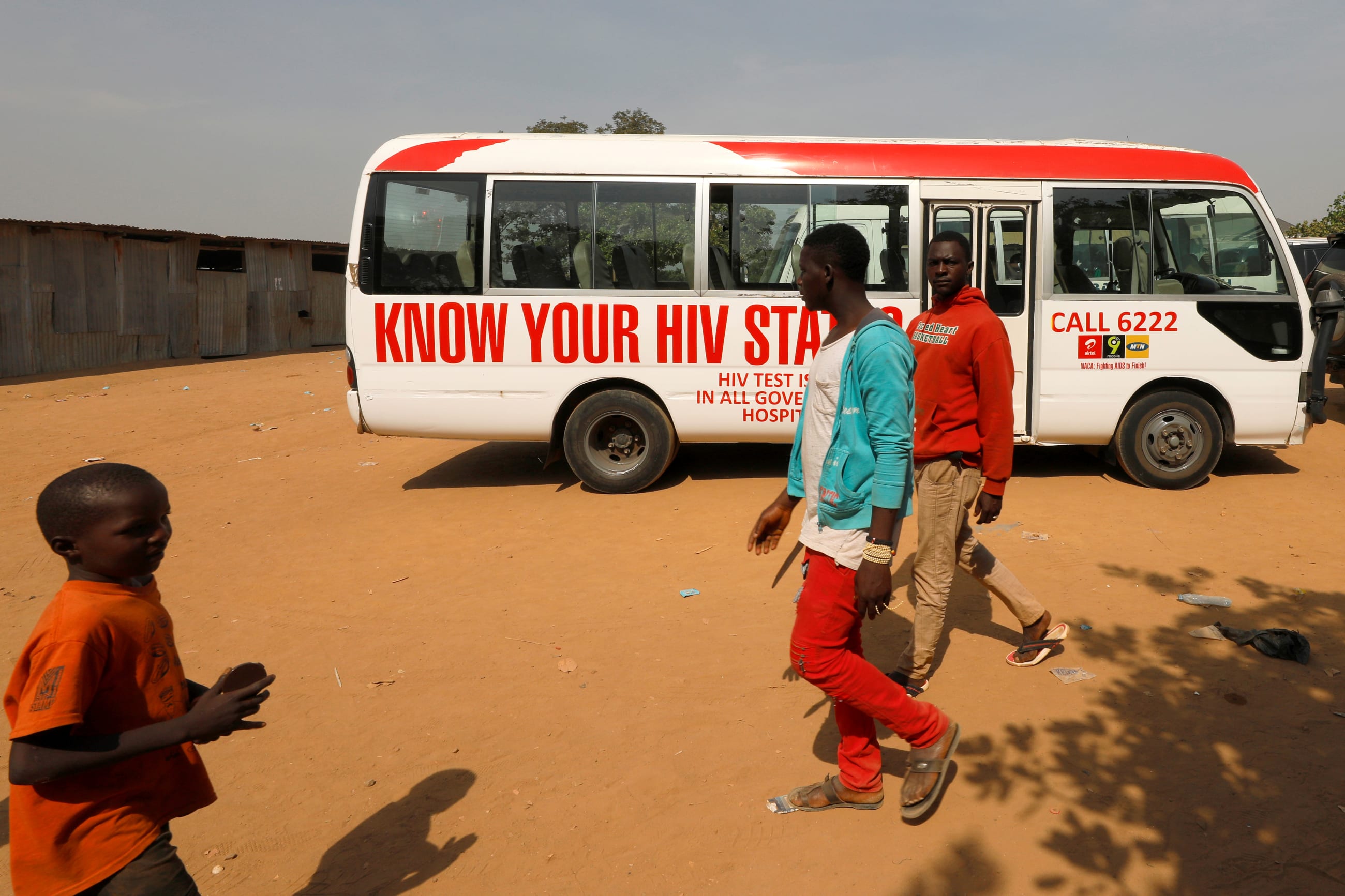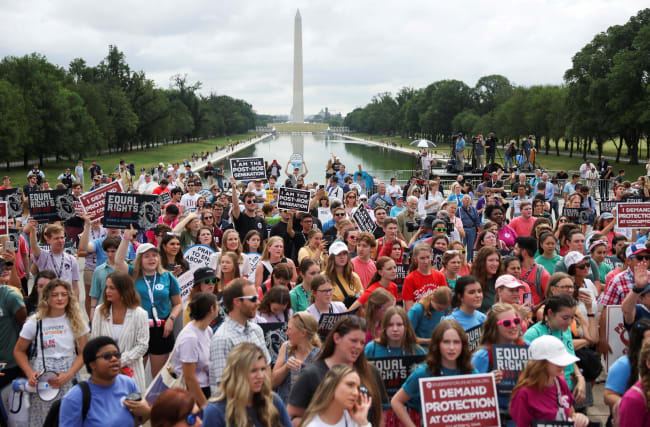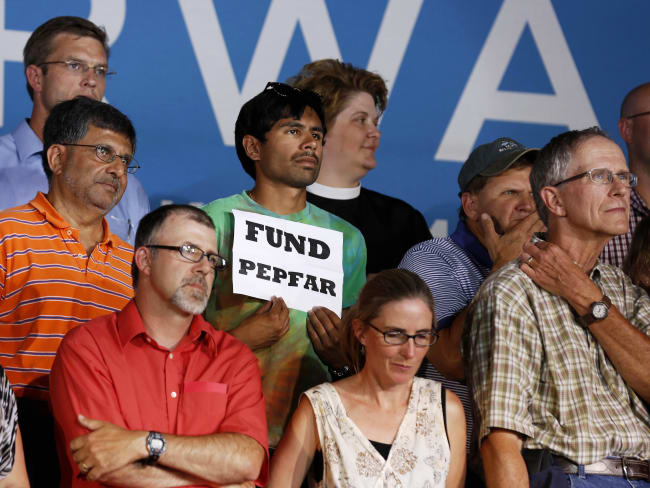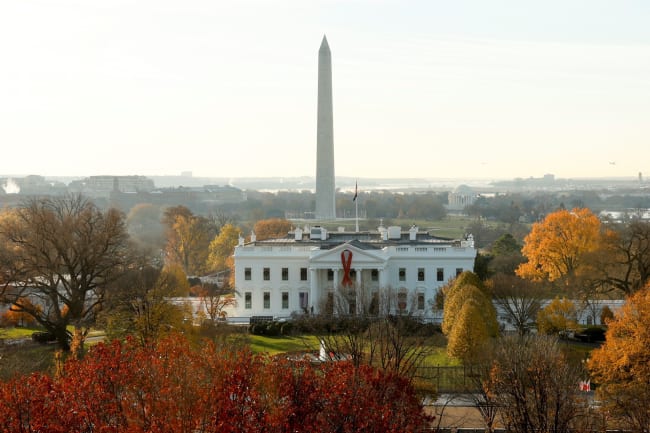A quarter of the women in Kigali's maternity hospital tested positive for HIV when I arrived in Rwanda as a young U.S. Foreign Service officer in 1985. Fifteen years later, when as U.S. ambassador to Togo I met with then President Gnassingbé Eyadéma, HIV was among the first topics we discussed. In my service across Africa throughout the 1990s, HIV was a terrible through line, devastating societies. That posed a humanitarian, development, and national security challenge for the United States.
Early on, meeting with groups of people living with HIV and AIDS in my role as a diplomat, I had very little to offer besides compassion. From my small bully pulpit, I tried to push back against stigma. But treatment was still a dream.
Later, when drug companies began to introduce antiretroviral therapies, some U.S. officials used their cost and complex administration as excuses to not make them available in Africa. The drugs must be taken in regular intervals and many Africans "don't know what Western time is," one said in unfortunate congressional testimony.
But not everyone saw it that way. "This African can tell time," I remember my boss Secretary of State Colin Powell growling in response.
HIV was a terrible through line, devastating societies.
President George W. Bush charged Anthony Fauci (then director of the National Institute of Allergy and Infectious Diseases), his colleague Mark Dybul, and Deputy Chief of Staff to the President Josh Bolton to come up with a bold plan to address the crisis, sending them back to the drawing board multiple times. In January 2003 during the State of the Union, he announced the result: the President's Emergency Plan for AIDS Relief, or PEPFAR. Dozens of members of Congress cosponsored the legislation, and solid majorities have reauthorized it regularly since.
Can we imagine today's Congress enacting a piece of legislation that would garner such strong and consistent bipartisan support?
Even by conservative estimates, PEPFAR is estimated to have saved twenty-five million lives over these two decades. Millions of would-be orphans still have parents. Health systems that would have been overrun and collapsed are instead increasingly functional and able to respond to new emergencies. In 2014, when Nigerian public health authorities rallied to stop Ebola, which had been imported from elsewhere in West Africa, PEPFAR's investments in their health system deserve part of the credit.
What about that heavily affected maternity ward I saw in Kigali back in 1985? PEPFAR has helped Rwanda control HIV in dramatic fashion: the prevalence of the infection there today is just 3 percent.
PEPFAR has worked, spectacularly, to save lives.
With PEPFAR, the prevalence of HIV in Rwanda is now 3 percent
The American nongovernmental organization I now head, Population Services International (PSI), has been proud to play a part alongside many others in collective efforts to control and eliminate HIV as a public health threat—and PEPFAR has enabled all of it.
Our organization's experience promoting contraception meant that in the 1990s we could rapidly scale our work marketing condoms to help prevent HIV. At its height, we were distributing close to a billion condoms annually. Nowadays, most of that work is done by independent African, Asian, and Central and South American nonprofits we spun off. PEPFAR helped fund it.
With PEPFAR funding, PSI helped countries such as Zimbabwe and Eswatini develop strategies for counseling and testing people; today more than 90 percent of their populations know their status, a core metric for controlling the disease.
In 2006, we began helping countries educate residents about the preventive benefits of voluntary medical male circumcision, and we scaled that work to reach millions of men. More recently, with funding from Unitaid, PSI has helped catalyze a global market for HIV self-tests; that breakthrough intervention has increased dramatically in parts of the world that had previously been excluded.
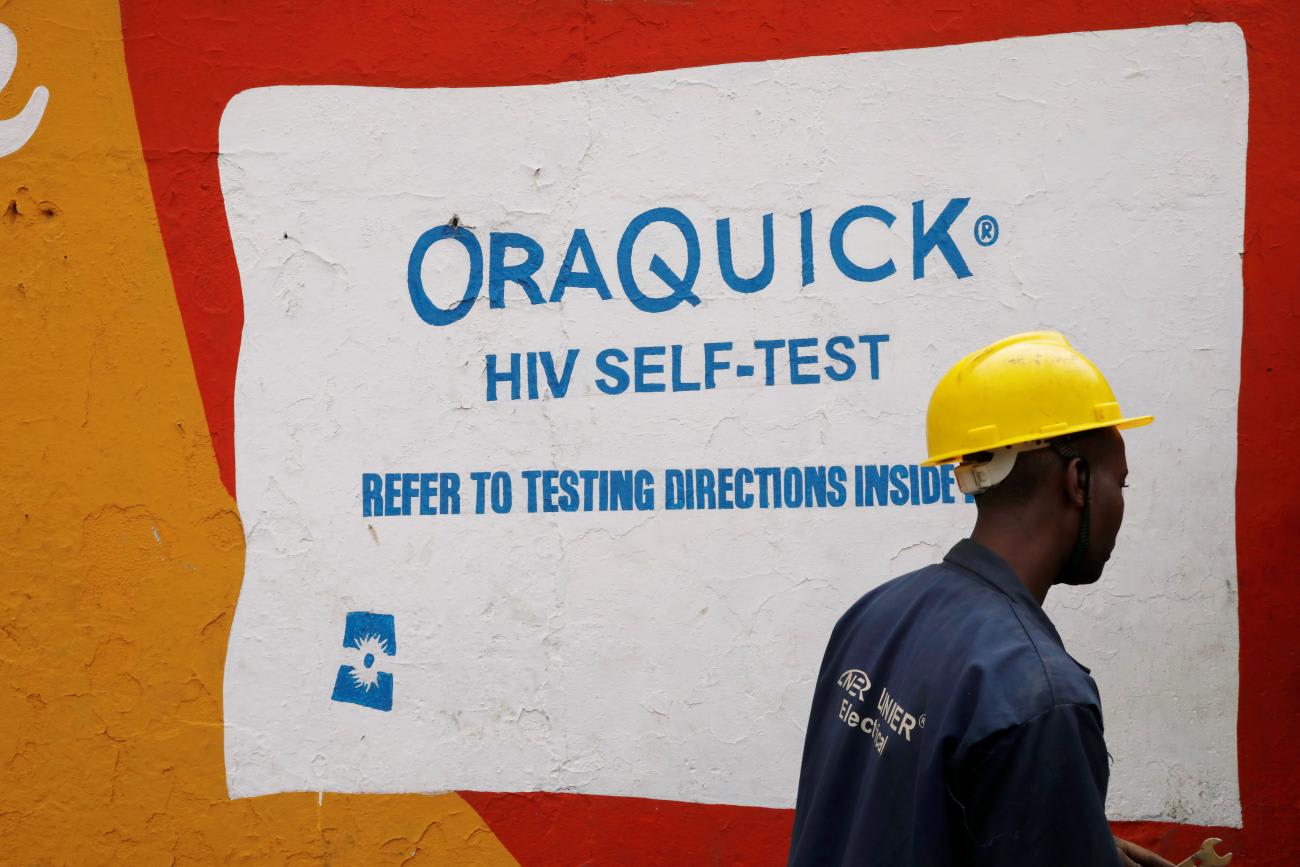
Along with many other donors, PEPFAR made it possible.
PEPFAR has proven to be a remarkably effective way of lifting up those who are suffering far away. It has also been an incredibly shrewd investment in global stability, productivity, and pro-American sentiment. As a former U.S. diplomat, I see its strategic value to the United States at a time of global geopolitical competition.
This spring, though, a small minority of U.S. legislators took PEPFAR hostage, wrongly connecting it to an anti-abortion agenda. They have singled out PSI and two other international nongovernmental organizations and asserted that we are using PEPFAR funding to advance abortion—that we are abortion rights Trojan horses seeking to transform PEPFAR from within.
This is false. PSI does not use any U.S. government resources to provide abortion services. No available evidence even suggests that a single PEPFAR-funded organization does.
Although I strongly disagree with those who want to advance an anti-abortion agenda at the expense of PEPFAR, I think I understand them. They want organizations that receive PEPFAR funding to cease any other work they do providing safe abortions. In fact, they believe it should be illegal for them to continue that work.
But it is not.
PEPFAR has proven to be a remarkably effective way of lifting up those who are suffering far away
Why do we at PSI conclude that facilitating safe abortions is part of our mission of improving global health?
For more than fifty years, PSI has helped the United States contribute positively to health services in more than forty countries. Whether we're fighting malaria or HIV, or providing sanitation or reproductive health services, we work with people and private organizations and governments to improve health outcomes, strengthen health systems, and save and improve lives.
In 2007, a potential funder challenged us to do something about a leading cause of maternal mortality in many places where we work: unsafe abortion. We studied the problem, and the next year our board of directors accepted the challenge and expanded our reproductive health work to include abortion services.
We believed—and still believe—that we can help women who would otherwise perish or be disfigured through unsafe abortions. Medical abortion in particular is a safe and effective way for women to terminate a pregnancy even when they do not have access to a nearby, well-equipped health facility.
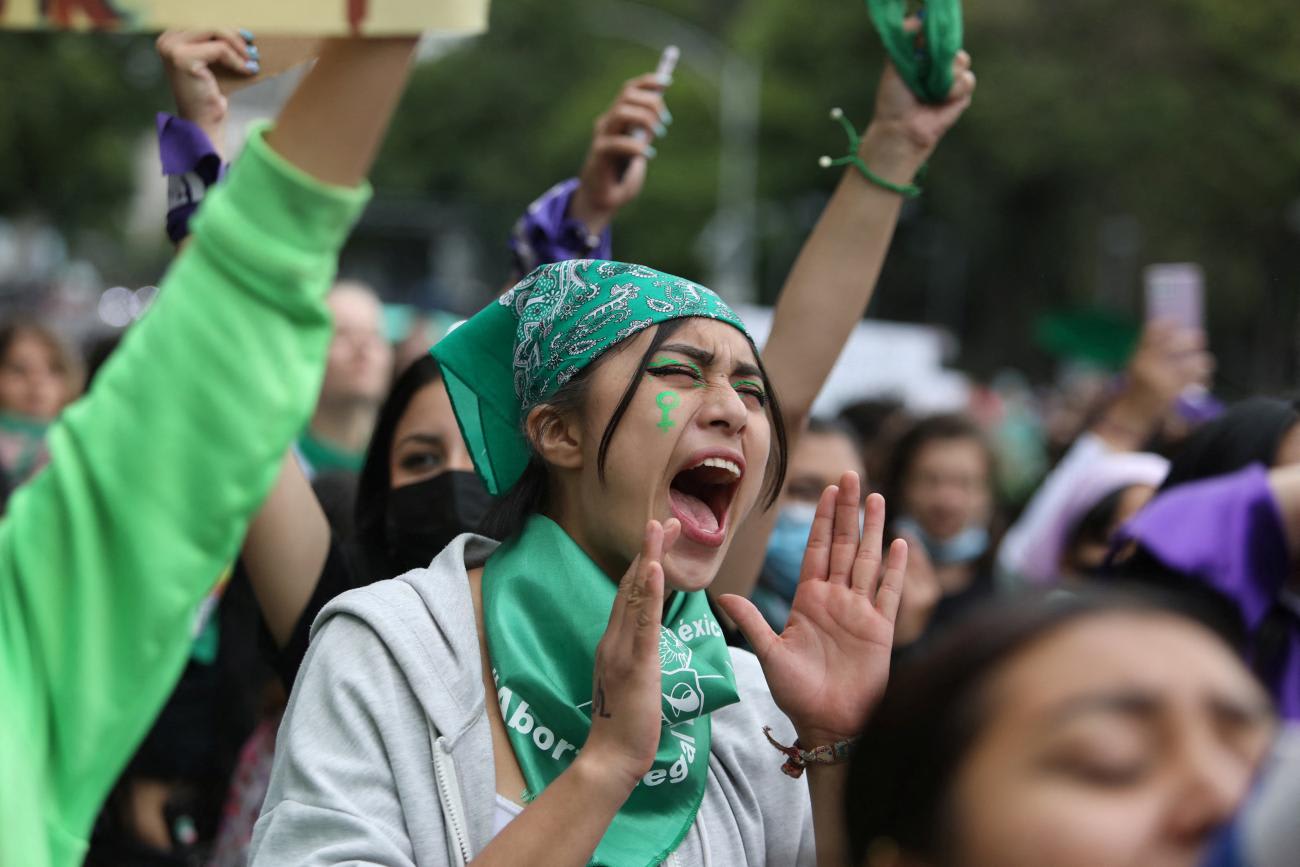
The safe abortion programs that PSI runs are partly funded by private organizations and foreign governments, and increasingly, are funded out of pocket by the people in the Global South who receive the services. Abortion is legal in every place we offer it, and we are committed to ensuring that this work does not imperil PSI's work for the U.S. government. We comply with all American laws and regulations, including the Mexico City Policy and Protecting Life in Global Health Assistance Policy, when they were in force. Those policies do not constrain American nongovernmental organizations such as PSI from doing what is legal with other people's money. The effort to muzzle U.S. organizations was challenged and litigated through federal courts, which have found that the U.S. Constitution protects this freedom. On no occasion since our founding in 1970 has PSI been found noncompliant with reproductive health or international family planning assistance regulations.
Those who fought to build PEPFAR and end HIV as a public health threat globally must ask themselves why an unrelated, unlegislated policy difference is being allowed to imperil this important, bipartisan, long-standing, and effective health work.
When minority views start to trample on majority health and rights, the health and rights of us all are under threat.
